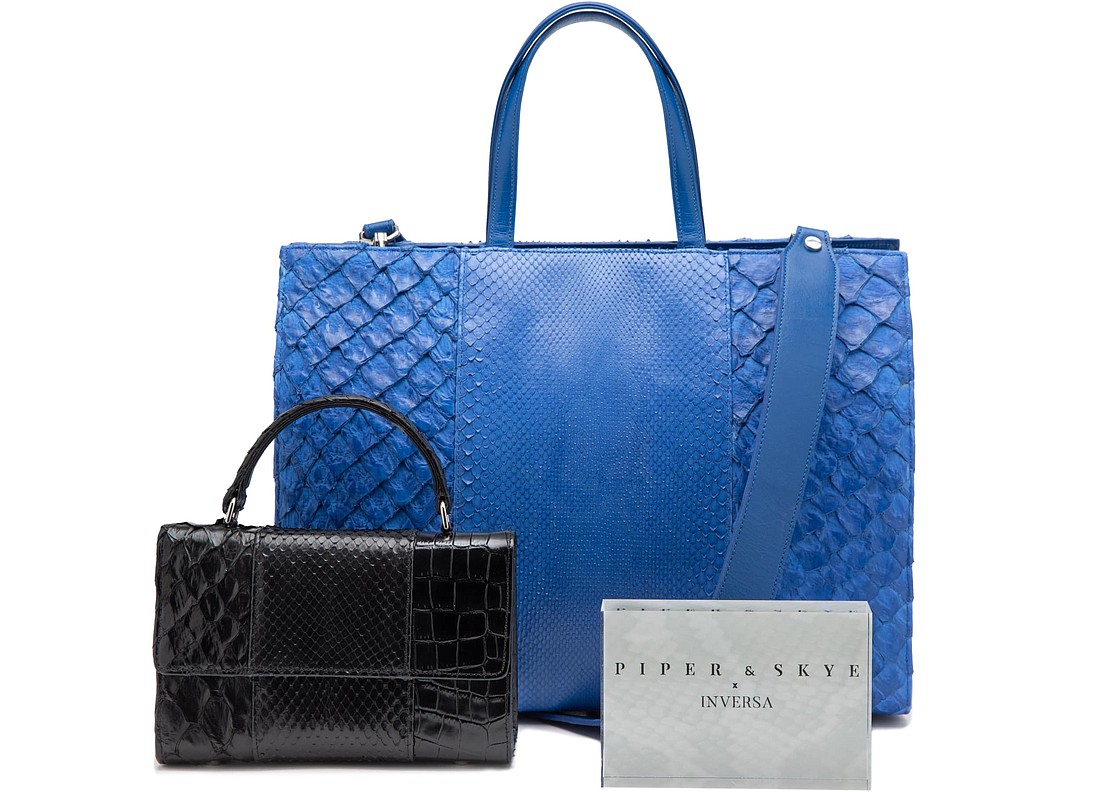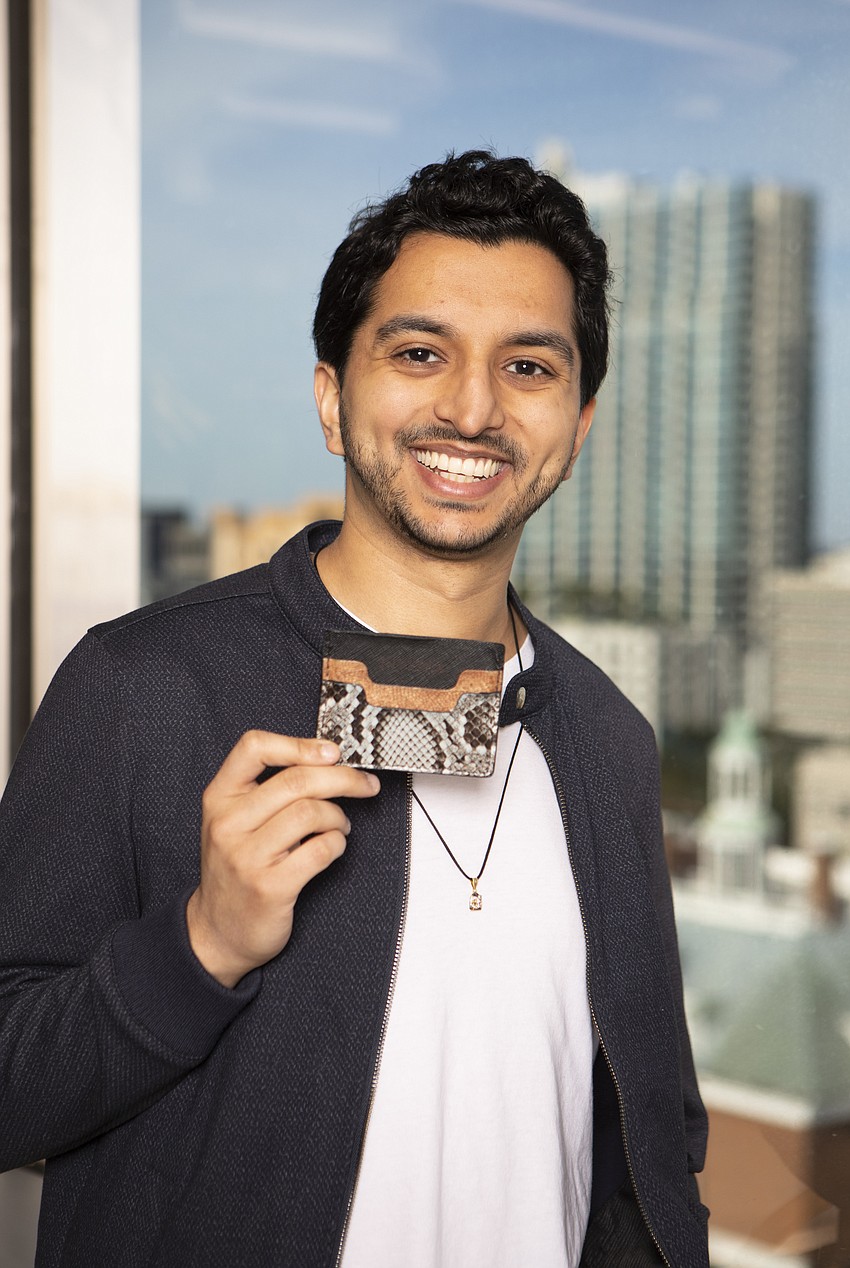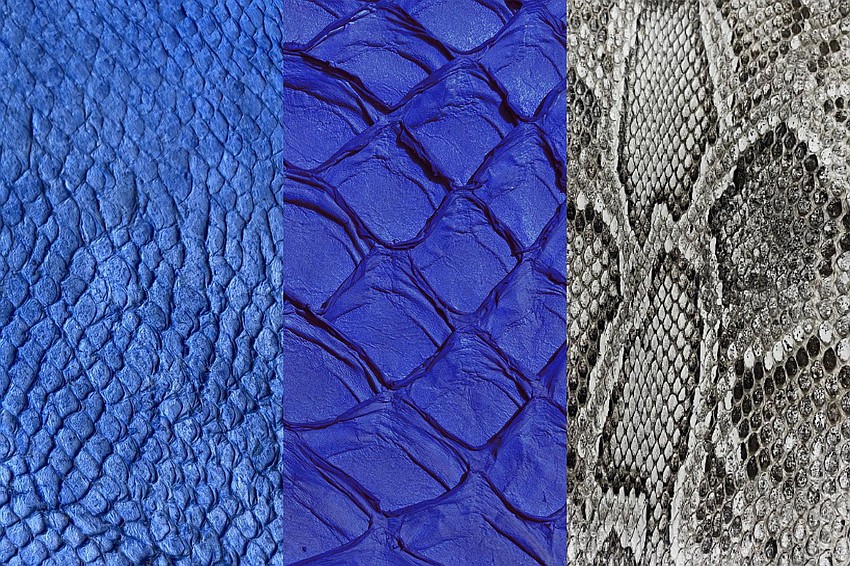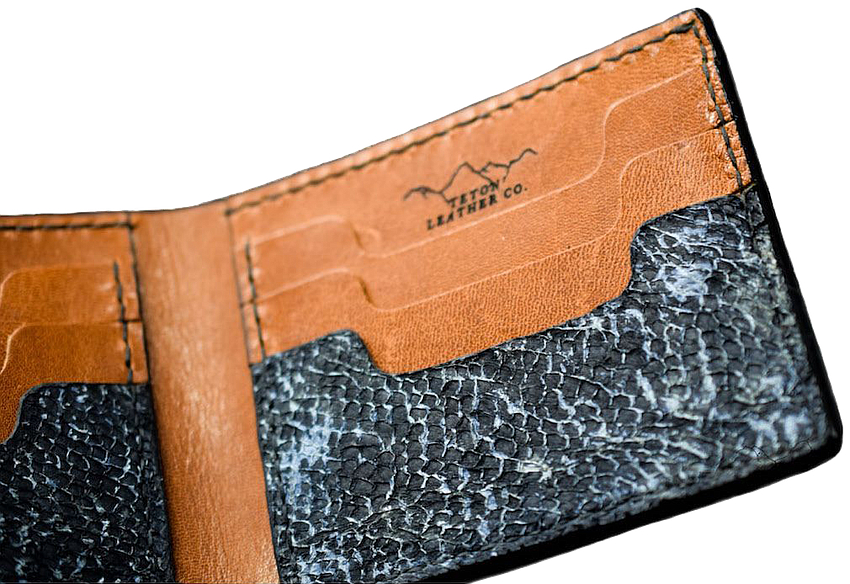- April 26, 2025
-
-
Loading

Loading

The next time you see a friend or colleague sporting a nice new leather wallet or handbag, take a closer look: Thanks to a Tampa startup, it might be made from the skin of one of Florida’s most notorious invasive species.
The company, Inversa, was founded in late 2020 — a “COVID company,” according to co-founder and CEO Aarav Chavda, who, along with co-founders Roland Salatino and Kahan Chavda, is an avid scuba diver.
Through their aquatic adventures, the trio became aware of the huge threat posed to Florida’s ecosystem by non-native lionfish, which can devastate coral reefs and native fish populations.
“Invasive species are one of the biggest under-recognized problems on the planet,” Chavda says, citing a 2023 report published by United Nations Intergovernmental Science-Policy Platform on Biodiversity and Ecosystem Services. That study, which involved 86 scientists from 49 countries, found invasive species cost the global economy $423 billion annually and are at least partially responsible for 60% of animal and plant extinctions.

“It’s been identified as one of the top five drivers of biodiversity decline across the planet,” he adds. “When you’re talking about something that massive, we’re not going to solve it unless we really connect to the consumer.”
Inversa — for now — is focused on three harmful non-native species that cause ecological and economic damage: lionfish and Burmese pythons in Florida and the Caribbean and dragonfin, formerly known as Asian carp, in the Mississippi River and Great Lakes.
“I’m excited about the way that fashion can have an impact on every major biome that we’re trying to protect,” Chavda says. He declines to disclose the firm’s revenue but says its expansion from lionfish to pythons and now dragonfin, in just under three years, is a sign of strong growth.
“What’s been most exciting for me," he adds, "especially from an impact perspective, is the new species.”
Inversa, Chavda says, has deals in place with about 25 fashion brands, including Grundens, a Swedish company that recently introduced a sandal made from lionfish leather that sells for $125 a pair.
“We price competitively versus exotic leathers,” Chavda says. “That’s typically where we see buyers coming from. This is not something that’s going to compete with vegan leathers or plastic leathers.”

Inversa’s clients, in marketing to consumers, don’t shy away from discussing how these products are made — by design.
“When you’re doing something different,” Chavda says, “you have to bring your consumer along, push your consumer along, on the journey. That’s absolutely an important part of doing something different. You have to talk about it.”
Inversa, he adds, is trying to be more than an environmentally sustainable company: He and his team strive to be net positive, to be regenerative in the way that they affect the environment.
“There’s a sustainability versus regenerative conversation that happens in fashion,” Chavda says. “I don't think it's enough to be sustainable, right? You're net neutral at best, or you're a little bit better than the next option, but it’s about being net positive. And that’s the conversation that’s happening in climate change.”
He adds, “We have to get past this idea of net neutrality; we have to get back to positive regeneration. The idea that your shoes or your wallet can help improve biodiversity — that’s very compelling for a certain consumer category.”

With 10 employees — five in Tampa and five in New York — Inversa remains a small company that must rely on a small army of local independent anglers, divers, and hunters to source the raw material for its leathers. But that’s also part of the brand’s appeal. And it's much more efficient.
“We work with local communities every step of the way,” Chavda says. “Going out to look for stuff on our own, that’s rapidly unscalable. We’ll work with anywhere from dozens to hundreds, or even thousands, of divers and hunters who can address a particular coral reef or forest or whatever it ends up being. That’s powerful, because no one knows their land or their water better than the people who live there.”
Inversa’s work with local conservationists is also an example of how private industry can step in and help close gaps in public funding.
“There are folks who want to do something about these problems, but when you go into, say, rural Caribbean areas, they’re not getting government support; they’re not getting nonprofit help; their coral reefs are getting destroyed," Chavda says. "We're able to take a powerful industry like fashion and fund their work, fund their [invasive species] removals, fund the cleanup of their communities.”